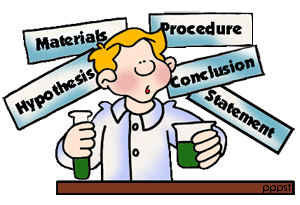SCIENTIFIC EXPLANATION
Thousands of years ago, we wouldn't have been able to correctly explain how the earth operated if someone asked us. Things we didn't comprehend were attributed to divine praise or wrath, or the belief that the world was random. We now have a greater understanding of why things are the way they are because of science. Science is the accumulation of knowledge through "observations" and "experiments." Science is concerned with nature.. As a result, we might refer to it as natural philosophy. An observation and measurement are used in a scientific explanation to clarify something we perceive in the natural world. Scientific explanations should be reasonable and match the facts, or at the very least match as much of the evidence as possible.
SCIENTIFIC EXPLAINATION
To provide scientific explanations, we require scientific information in order to forecast outcomes. We must, however, be able to explain things. The nature of scientific explanations has piqued philosophers' curiosity. Understanding the commonalities between many things was the goal of scientific explanation. Different kinds of items attract the curiosity of scientists.
- How To Investigate Scientific Explanation?
Research into the nature of scientific explanation is referred to as a scientific explanation research. In order to find this nature or essence, we must first examine the concept of scientific explanation. An explanation will follow from such an examination of the concept of scientific explanation. This explanation will produce the required and sufficient circumstances for something to be considered scientific.
- Scientific Questions and Explanation.
The scientific method necessitates the use of questions. However, simply asking any question is insufficient. Science is all about posing good questions that can be answered with direct observation or scientific methods. Questions that investigate the connections between different phenomena. Let us consider the question, "What is the meaning of life?" This is a thought-provoking question, to say the least. Its response would most likely be dependent on your personal ideals or beliefs. As a result, the answer would differ widely depending on who was answering. While this may be an appropriate subject for a philosophy or theology class, It is not a question that can be answered by science.
- Deduction and Induction
Generally speaking, there are two sorts of reasons: deduction and induction. The deduction is sometimes called the top-down approach. It takes premises and reduces them down to conclusions. For example, of deductive reasoning.
(P1) All men are mortal
(P2) Earl Gray is a man
--------------------------------------
(C) Therefore, Earl Gray is mortal.
We can be logically certain of the conclusion. Given the premises, the conclusion must be true. Inductive reasoning is sometimes called the bottom-up approach. It takes premises and draws probable conclusions based on what those premises provide evidence for.
THE DEDUCTIVE–NOMOLOGICAL SCIENTIFIC EXPLANATION
Carl Hempel and Paul Oppenheim present a theory of what makes something a scientific explanation. Simply put a scientific explanation deduces the thing you want to explain from a law of nature, plus some initial conditions.
In a scientific way to explain something, we see in the natural world, scientists employ observations and measurements. We should also work on asking strong scientific questions, developing strategies for appropriately investigating questions, analyzing findings, making conclusions, and being able to describe, explain, and forecast scientific discoveries as part of the objective of writing this article

No comments:
Post a Comment